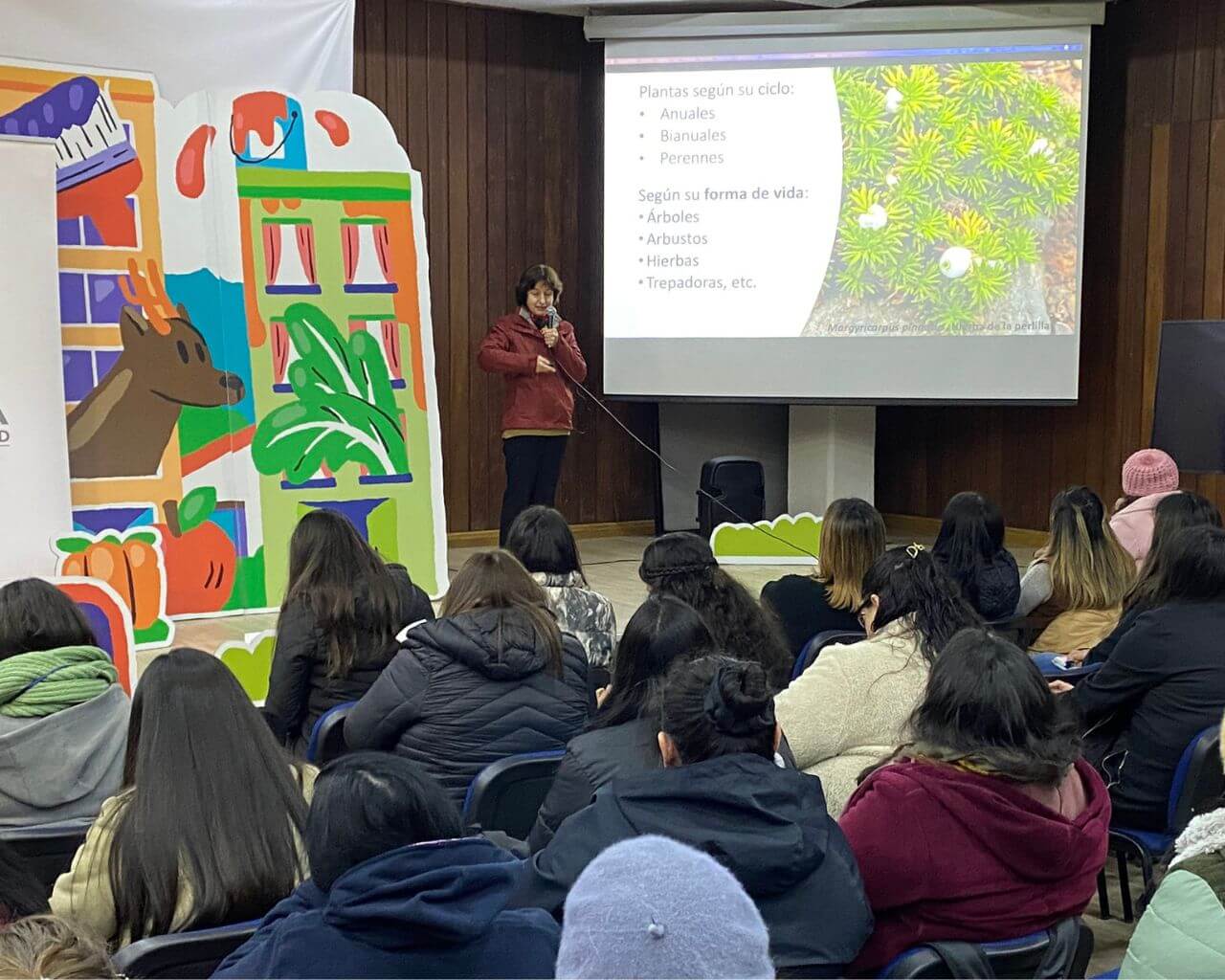The university trains early childhood teachers to teach science
They learned innovative methodologies to foster scientific curiosity in early childhood.
Author: Claudio Pereira Valdebenito | June 7, 2024

The Program of Inquiry into Early Ages (PIPE) of the Explora Maule project, implemented by the General Directorate for Engagement with the Environment of the University of Talca, has started a new version of the program with training targeting pre-school teachers and assistants.
The main goal of the initiative is to support those who dedicate themselves to this work with active methodologies and innovative educational techniques that arouse scientific curiosity in boys and girls.
“We are very happy with the wide-ranging call, but above all because, for the first time in the history of the programme, we are implementing it in 30 municipalities in the Muli region, allowing girls and boys to get closer to science and technology “in a close way, but with scientific and pedagogical precision”, commented the head of the unit. Publishing and Director of Explora Maule, Cesar Retamal.
PIPE is one of the initiatives that seeks to improve the quality of education and provide innovative educational opportunities to children in the region. This year’s first session brought together more than 140 early childhood teachers and assistants, who learned about applying the inquiry method to science teaching.
Two topics were covered in the training: indigenous plants and children’s right to knowledge. In the first phase, which focused on plants, Flavia Ciakabas, academic at the Faculty of Agricultural Sciences at the University of Talca, taught about indigenous flowers in Chile, their characteristics, types and their impact on the environment.
“I was very interested in partnering with the teachers because they are the first to teach girls and boys, so the earlier we teach them to recognize plants and their purpose and importance, the more they can be preserved and protected when they are planted. It’s even bigger,” Sciacabas said.
On the other hand, Isaac Ravitlat, an academic at the Faculty of Legal and Social Sciences at the University of Talca, pointed out the right of boys and girls to access scientific knowledge and quality education.
“Science topics with girls, boys and adolescents must be addressed from a comprehensive perspective. We have to do science together with their rights. Never overexpose them and, above all, be able to adapt methodologies so that children doing science are the focus,” said Ravitlat. work and not the other way around.
early childhood
The course is designed according to an inquiry-based learning model and incorporates scientific knowledge found in the foundations of current early childhood education curricula. Teachers participating in the program received a methodological folder containing scientific activities and educational materials for working with preschool children in the classroom.
Tamara Letellier, a pre-school teacher at Ramon Leyva School in Villa Alegre, highlighted the pedagogical quality and opportunities available to her students through the program: “I like the program very much, and now girls and boys like more experiences, activation with movement, it seems to me like an opportunity.” Very good to apply in the classroom.”
Meanwhile, the teacher of the “Las Dulzuras de Pulgarcito” kindergarten in Chanco, Ana Hormazábal, stressed the importance of teaching science at early ages: “Learning all the methodologies and knowledge they taught us here will be very useful for practice.” In my garden. Boys and girls at these ages are very open to the knowledge that is presented to them, which is why early childhood science education is so important.






More Stories
“Those who go to museums but do not see an oak tree in the countryside should blush.”
Michoacana Science and Engineering Fair 2024, When the Call Ends – El Sol de Zamora
Dr. Miguel Kiwi, winner of the National Science Award, gives his opinion on nanoscience in Chile